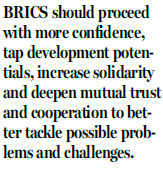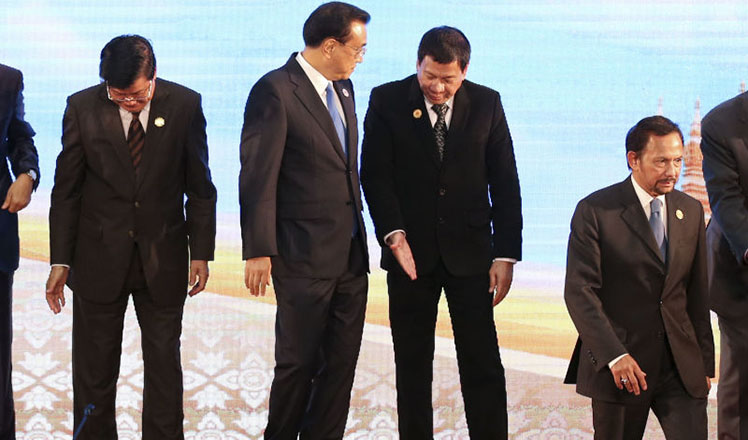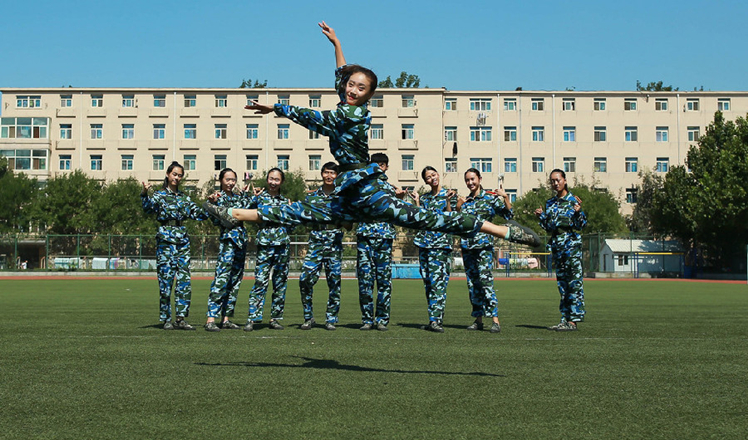BRICS key to improve global governance
Updated: 2016-09-08 07:00
By Chen Xiangyang(China Daily USA)
|
||||||||
Leaders of BRICS (Brazil, Russia, India, China and South Africa) held an informal meeting on Sunday morning before the G20 Summit began in Hangzhou, East China's Zhejiang province, and vowed to coordinate their policies, increase communications, deepen cooperation and jointly tackle challenges.
The meeting came at a time when BRICS faces the risk of retrogressive, rather than progressive, cooperation because of new, intricate circumstances. The "competition and cooperation" games developed and emerging economies play on the geopolitical, geo-economic and other fronts, despite being different from those between the two major camps during the Cold War, highlight the need for strengthened coordination and cooperation among BRICS members.
Mounting uncertainties created by political changes or recession in some BRICS countries and Western economies' attempts to exploit potential dissensions to create chasms among BRICS members - such as the United States' efforts to cozy up to India and hype up unresolved issues between New Delhi and Beijing, have also made it necessary for the five nations to communicate regularly, enhance mutual trust and dispel misgivings.

As President Xi Jinping said in his speech at the meeting, the rise of emerging economies and developing countries is one of the greatest changes in international relations, and thus BRICS members, both as leaders of emerging markets and developing countries and important members of the G20, should strengthen coordination and cooperation to support the development of the two important platforms so that emerging and developing economies can play a bigger role in international affairs and global governance.
BRICS members face a generally stable external environment but rising uncertainties. Under these circumstances, BRICS should proceed with more confidence, tap development potentials, increase solidarity and deepen mutual trust and cooperation to better tackle possible problems and challenges.
BRICS members should expedite their efforts to implement an innovation-driven development strategy, boost domestic demands, deepen structural reforms and sharpen their traditional comparative advantages in order to boost their medium - and long-term growth potentials. In particular, they should bring to fruition the consensus reached in Ufa, Russia, last year to advance their economic partnership by promoting trade and investment, infrastructure connectivity and people-to-people exchanges. This is also the key to ensure BRICS members enjoy lasting economic growth and cooperation.
Besides, BRICS members have to increase their communication and coordination under the G20 framework, push forward the structural reform of International Monetary Fund and World Bank governance, as well as demand greater representation and say for emerging and developing countries. They should also work together to safeguard the multilateral trade system and help develop a transparent world economy opposed to protectionism to ensure all countries enjoy equal development opportunities and rules.
At the BRICS meeting, Xi also urged the emerging-market bloc to drive help the BRICS New Development Bank implement the first batch of projects, boost its management and financing capabilities, and enrich its macro-research on the contingent reserve arrangement, in order to strengthen the five countries' financial security.
On the principle of respecting each other's concerns and interests, BRICS countries should continuously deepen their security cooperation, and safeguard the UN Charter and principles of international relations to facilitate win-win partnerships and a peaceful and reasonable international order.
More importantly, BRICS states should insist on their right to choose the development models that best suit their real conditions and oppose any intervention in their internal affairs.
BRICS states should also try to dovetail their domestic development strategies to the international development agenda and urge developed countries to fulfill their obligations to help developing countries realize their development goals and to promote South-South cooperation.
The author is a senior researcher in world politics at the China Institutes of Contemporary International Relations.
(China Daily USA 09/08/2016 page12)
- British parliament to debate second Brexit referendum petition
- Chinese women find their way through the glass ceiling
- Rousseff leaves presidential residence in salutation
- Thousands of Chinese rally in Paris to call for 'security for all'
- Xi tells Park China opposes deployment of THAAD in ROK
- Singapore confirms 27 new cases of Zika infection

 Unforgettable moments of Premier Li at ASEAN meeting
Unforgettable moments of Premier Li at ASEAN meeting
 Six policy signals China sent at G20 Summit
Six policy signals China sent at G20 Summit
 'First Lady table ware' a hit in Hangzhou
'First Lady table ware' a hit in Hangzhou
 Paralympics opens in Rio
Paralympics opens in Rio
 Street-straddling bus continues tests
Street-straddling bus continues tests
 British man falls for ancient Jiangxi village, buys property
British man falls for ancient Jiangxi village, buys property
 Post-90s property beauty's daily life
Post-90s property beauty's daily life
 Freshmen show dance skills during military training
Freshmen show dance skills during military training
Most Viewed
Editor's Picks

|

|

|

|

|

|
Today's Top News
Trump outlines anti-terror plan, proposing extreme vetting for immigrants
Phelps puts spotlight on cupping
US launches airstrikes against IS targets in Libya's Sirte
Ministry slams US-Korean THAAD deployment
Two police officers shot at protest in Dallas
Abe's blame game reveals his policies failing to get results
Ending wildlife trafficking must be policy priority in Asia
Effects of supply-side reform take time to be seen
US Weekly

|

|